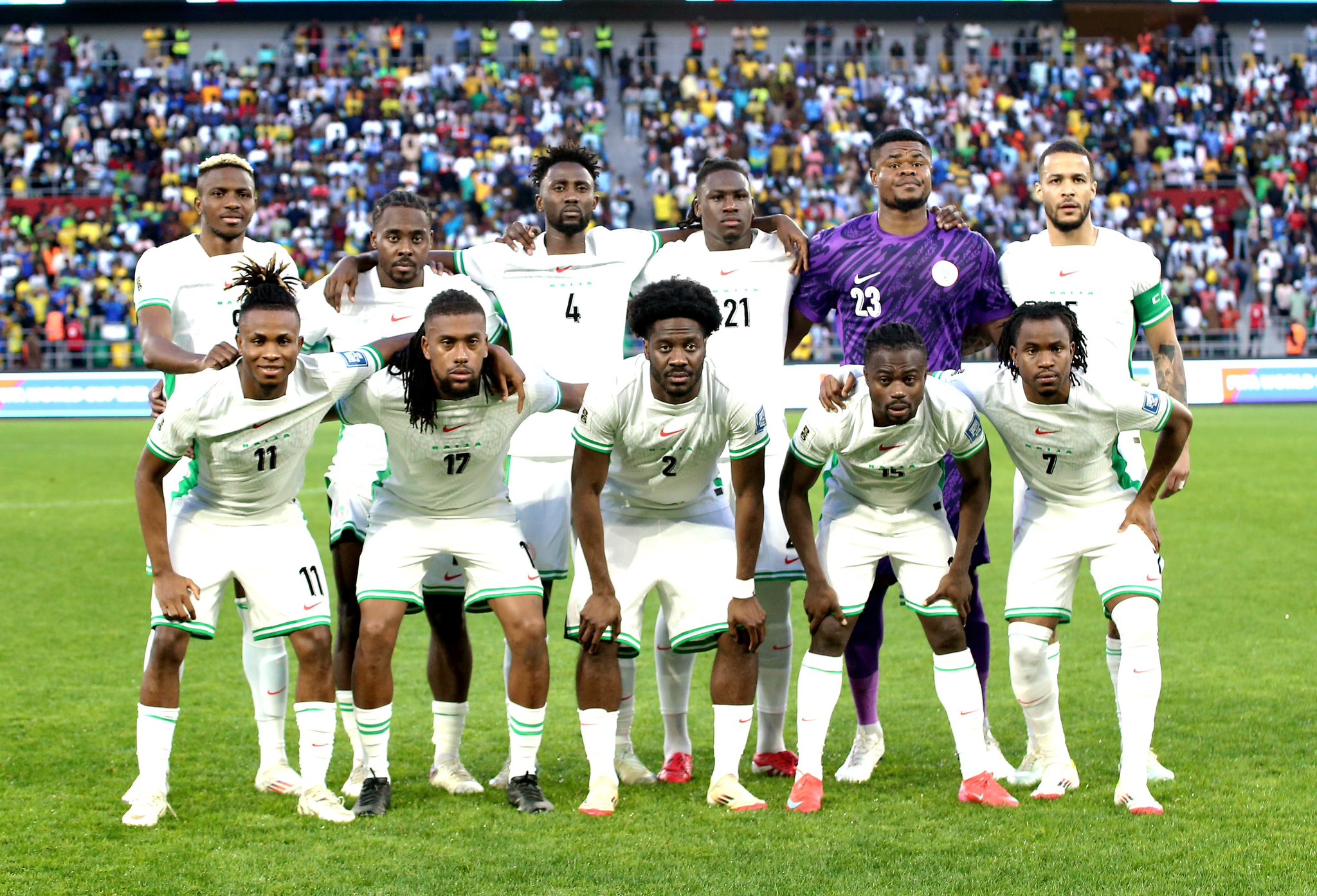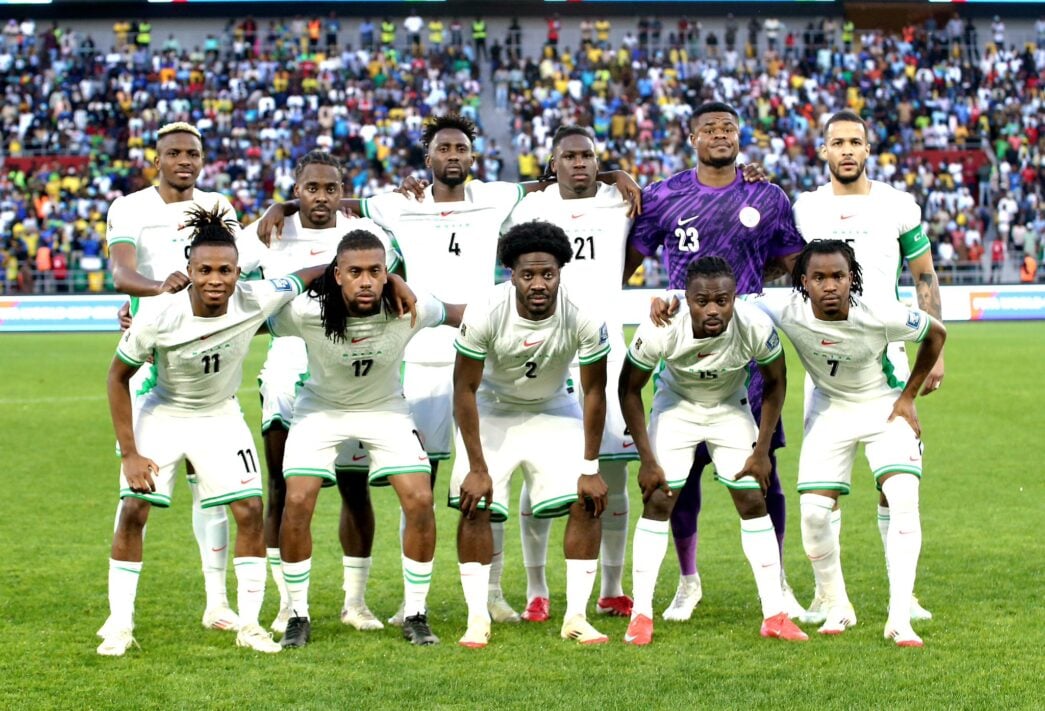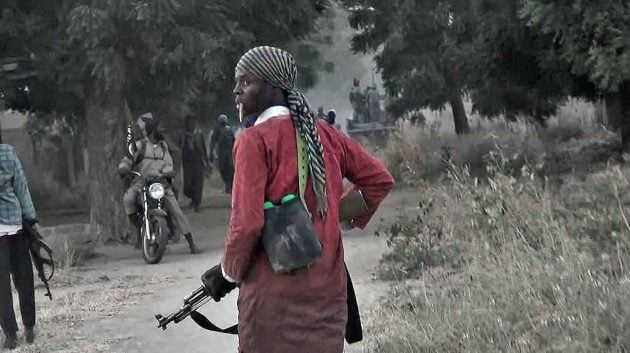The beautiful game in Nigeria is dying—betrayed by those entrusted with its care. This is not merely the story of a missed penalty but of a system deliberately engineered for failure.
In a quiet stadium in Morocco on November 16, 2025, the dream of a nation ended not with a roar, but with the whimper of a missed penalty. The Super Eagles crashed out of World Cup qualification, losing 4–3 on penalties to the Democratic Republic of Congo after a 1–1 draw. For a second straight cycle, Nigeria will watch the World Cup from the screen of their televisions, while Congo DR proceeds to the inter-confederation playoffs.
This failure represents something far deeper than poor performance on the pitch. It is the inevitable culmination of years of institutional rot, a systemic collapse engineered by a football federation that has perfected the art of self-sabotage. From financial mismanagement and chronic player neglect to the abject decay of youth development structures, Nigerian football has been methodically stripped of its competitive edge by the very institution meant to nurture it.
If Nigeria ever needed proof that a house can collapse without a single storm, the last two World Cup cycles have delivered a masterclass. Our footballing giant didn’t fall to tactical wizardry or supernatural hexes; no, it tripped—spectacularly—on the tiny but stubborn pebbles of corruption, ineptitude, and a bureaucracy that moves like a generator being dragged uphill by a tired goat.
Advertisement
Recently, I have run from pillar to post seeking sponsorship to cover the forthcoming AFCON in Morocco, with little or no success. But now, I understand why many potential sponsors hesitated. If this is the best a nation of more than 200 million people can offer as a national team, why should anyone invest his money or energy? It is simply not worth the finances and the stress.
Let’s tell it straight: the Nigerian Football Federation (NFF) failed the nation long before the Super Eagles failed on the pitch.
Corruption: The Great National Equalizer
Advertisement
At the heart of the NFF’s failure lies a financial culture designed for graft, not growth. In October 2025, the House of Representatives resolved to probe the NFF over the alleged mismanagement of more than $25 million in FIFA and CAF grants received between 2015 and 2025. Despite this massive inflow, there is almost nothing to show—no infrastructure, no developmental blueprint, no meaningful reform.
This financial malpractice has real competitive consequences. Super Eagles players have been repeatedly denied their earnings, with unpaid bonuses dating back to 2019. The situation boiled over during the recent playoff tournament in Morocco, when players boycotted training before the crucial match against Gabon in protest.
The NFF operates with remarkable insulation from accountability, treating Nigeria’s football infrastructure as a personal enrichment scheme rather than a national trust. FIFA’s insistence that member federations are autonomous does not help matters, as it provides a convenient cover for the corrupt and irrigates mismanagement. And when federations fail spectacularly, FIFA remains “institutionally absent, hiding behind legalese and ‘autonomy clauses’ that conveniently absolve it of responsibility.” This has created a perfect environment for what could be described as “a global laundering cartel,” with the NFF as its Nigerian branch.
Despite President Bola Tinubu’s approval of ₦12 billion in January 2024 to settle outstanding national team debts, players still went unpaid, dating as far back as 2019. How does one explain that to an intelligent human being?
Advertisement
The NFF has long resembled a badly scripted soap opera—brimming with drama, devoid of accountability, and riddled with plot holes wide enough for a visually impaired striker to score through. Systemic corruption permeates every crevice: inflated budgets, phantom expenses, and decision-making that resembles a village meeting where the loudest voice wins.
Planning is an afterthought. Transparency is a luxury. Competence is a myth. And the product is predictable: chaos, confusion, and mediocrity.
The Development Pipeline: A Generation Betrayed
Perhaps the most damning indictment of NFF leadership is the collapse of youth development—the once-vibrant pipeline that produced some of Africa’s greatest talents.
Advertisement
Nigeria’s U-17 team, the Golden Eaglets, has now failed to qualify for the African U-17 Cup of Nations three consecutive times, severing a critical pathway for emerging stars. The U-20 team (the Flying Eagles) qualified for the 2025 FIFA U-20 World Cup in Chile, only to exit lifelessly in the second round, losing 0–4 to Argentina. The women’s U-17 team (the Flamingos) suffered a similar fate, falling 4–0 to Italy in their World Cup campaign. The U-23 side—the once-glorious Dream Team that won Africa’s first Olympic football gold in Atlanta 1996—has become a forgotten relic, having failed consistently to qualify since Rio 2016. I won’t bore you with the litany of failures, signposted by early-round exits, that have come to define our league sides participating in CAF’s clubs continental competitions. Out of four, we have only Rivers United left within two months. The trio of Kwara United, Abia Warriors, and Remo Stars have since been eliminated.
Worse still is the arrogance that accompanies this decline. Mismanagement of player selection, logistics, contracts, and planning has turned the national team setup into a circus—without the entertainment.
Advertisement
A “football powerhouse” without a functional developmental pipeline is merely a myth. The NFF behaves like an institution allergic to excellence, consistently missing the simplest opportunities to do things right.
Today, many young players and their parents no longer see the national team as a path to, or peak of, glory. Their goal is to join well-structured private academies with the hope of securing European transfers, since they know they stand no chance against bribe-seeking agents and officials within the Glass House. To get your ward to attend trial at a supposedly open camp for the age-grade national teams, I learnt, goes with a fee in the region of a million Naira, depending on who you are talking to. Little wonder, we lost Emmanuel Adebayor—a full-blooded Nigerian to the Hawks of Togo after he was allegedly denied an opportunity to attend the national team trial preparatory to Egypt 97, FIFA U-17 World Cup, because he couldn’t or refused to meet the financial demands of the demons in charge at the time.
Advertisement
The result? A national team stripped of talents and a nation robbed of its footballing future.
Home-Based Players: Invisible and Undervalued
Advertisement
Nigeria has one of Africa’s most vibrant leagues—chaotic, yes, but filled with raw and hungry talent. And yet, these home-based players remain spectators in their own national narrative.
Instead of building competition within the team, the NFF and coaching setup treat foreign-based players as the default option, even when they’ve not kicked a ball in months in their respective clubs abroad. There’s no structured scouting network, no clear pathway, and no incentive for domestic players to believe they can crack the elite squad.
A team without healthy internal competition becomes complacent. And complacency? It kills faster than a counterattack gone wrong. If a player faces little or no internal competition, it becomes very difficult to compete with opponents. I don’t have to remind you how key Geoffrey Oboabana (Sunshine Stars of Akure), Azubuike Egwuekwue (Warri Wolves), and Sunday Mbah (also of Warri Wolves and the scorer of the only goal in the final against Burkina Faso) were to Stephen Keshi’s AFCON-winning team of 2013, do I?
Players’ Nonchalant Attitude: The Comfort Zone Syndrome
Let’s not pretend the players are saints in this tragedy. Too many stroll on the pitch like they’re taking a casual evening walk at Jabi Lake or a stroll into a shopping mall where they go for impulse buying. The hunger is missing—the urgency, the grit, the “die-there” energy, the “Naija spirit” that defined past generations.
Why? Because there’s no real accountability. No performance standard. No consequence for mediocrity. Nobody gets fired when the team fails. When no one is fighting with you over your jersey, it becomes easy to treat it like a souvenir rather than a badge of honour.
Unpaid Bonuses: Motivation on Credit
Expecting peak performance from players whose allowances arrive later than a politician’s campaign promises is delusional. Footballers are professionals, not monks. Their welfare matters.
Chronic delays in payments reinforce a culture of irresponsibility at the top. You cannot destabilize a squad financially and expect emotional stability on the pitch.
The DR Congo Defeat: Not an Accident, a Warning
A 1–1 stalemate. A 4–3 penalty loss. Another World Cup dream gone. But this wasn’t about 120 minutes of football; it was the culmination of years of rot.
DR Congo didn’t defeat Nigeria. Nigeria defeated itself long before kickoff. The NFF remains the toughest opponent the Super Eagles will ever face.
If Nothing Changes: A Darker Future Beckons
If the current trajectory holds, brace for:
More failed qualifications
More talent drain
More fan and sponsor apathy
More continental humiliation
More “almost-there” tragedies
A nation once feared will become a footballing meme—famous for squandered potential.
The Way Out: Tear It Down, Build It Properly
A system this broken cannot be patched. It must be rebuilt from the foundation.
1. Full Structural Reset:
Re-engineer governance, finance, and administration. Real reform, not cosmetic adjustments.
2. Leadership Detox
Install competent leaders—people with track records, not tracksuits. Leadership must be transparent, modern, developmental, and accountable. Enough of boardroom godfathers deciding national destiny. Invitation of players, matchday team selection, and other core decisions must be left for the technical crew to decide, uninfluenced.
3. Integrate Home-Based Players:
Establish a credible domestic scouting network. Ensure at least 30–40% home-based representation to foster genuine competition.
4. Enforce Player Accountability
Clear performance metrics. Clear consequences. No entitlement. No sentimentality. No living off past glories. No half-hearted runs. In elite national teams like Germany, if you can’t clock 10 seconds over 100 meters, you simply don’t make the cut for Die Mannschaft. The same level of standards should apply to the Super Eagles and every other national side. A player must be able to drive the ball forward for at least 20 to 30 meters. He or she must also have the capacity to deliver an accurate pass over a similar distance or longer. It’s neither rocket science nor further mathematics—it’s just a standard.
5. Financial Discipline and Transparency:
Adopt a fully electronic payment system with traceable digital footprints. End underhand dealings.
6. Rebuild the Academy-to-National-Team Pipeline
Invest in grassroots development, modern academies, and long-term planning. Great nations build; they do not borrow.
Final Word: The Giant Can Still Rise
Nigeria is too blessed, too talented, and too football-rich to be missing World Cups like a nation testing mediocrity for sport. When Africa had just 3 or 5 slots, Nigeria qualified. How then do we struggle now that the slots have expanded to 9+?
Talent without structure is wasted energy, and the NFF has perfected the art of wasting.
But if the courage exists to rebuild, the Eagles will soar again. If not, the world will soon know Nigerian football only through YouTube throwback clips—and that would be a tragedy beyond words.
Abubakar writes from Ilorin, Kwara State. He can be reached via 08051388285 or [email protected].
Views expressed by contributors are strictly personal and not of TheCable.




